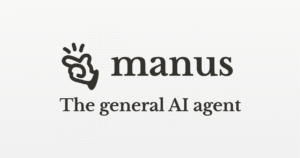Discover Manus AI: The Self-Sufficient Assistant Aiming to Handle Your Tasks

The Rise of AI Agents: Understanding Manus
As the landscape of artificial intelligence rapidly evolves, keeping up with these advancements can feel overwhelming. While early AI models like ChatGPT were celebrated as groundbreaking tools, the current environment is dense with numerous contenders, including Anthropic’s Claude, Google’s Gemini, Microsoft’s Copilot, Apple’s Intelligence, and many others. Among these, a new player, Manus, is attracting attention for its distinct capabilities.
What is Manus?
Manus, created by the Chinese AI startup Monica, is marketed as an autonomous AI agent capable of handling complex tasks independently. Unlike traditional chatbots that respond to user queries with pre-defined answers, Manus aims to take a vague user request, such as planning a trip, and break it down into manageable subtasks. Essentially, it operates with minimal human intervention to deliver comprehensive plans and suggestions, thereby acting as a personal assistant that can potentially execute on the user’s behalf.
The technology underlying Manus combines the Claude Sonnet and Qwen models, fine-tuned to enhance its functionality. Yichao "Peak" Ji, the co-founder and chief scientist of Manus, emphasizes its role as a gap-bridging agent between idea generation and execution. This perspective positions Manus as a tool that not only conceptualizes solutions but also implements them effectively.
Why Manus is Significant
The key aspect of Manus lies in its autonomous nature. Described under the concept of agentic AI, it allows for independent action to achieve desired outcomes. This capability was demonstrated in a series of use cases showcased in the promotional video. Some notable examples include:
- Resume Screening: Manus can sift through a .zip file of resumes and present findings in a spreadsheet format.
- Property Research: It can analyze real estate options in New York based on specified criteria and develop a Python script for budget calculations.
- Stock Analysis: Manus is able to interact with APIs for stock market analysis, resulting in published reports complete with interactive charts.
These examples illustrate Manus’s potential to streamline complex tasks, making it significantly faster and easier for users to achieve results compared to traditional methods.
Accessing Manus
Currently, Manus is available only through a private beta phase, making access to the tool highly sought after. People eager to try out Manus can join a waitlist on its official website. Fascinatingly, invite codes have become so desirable that they are being resold, sometimes for exorbitant prices on platforms like eBay.
For those who want to experiment with the functionality of Manus without needing an invite, an open-source alternative called OpenManus has surfaced on GitHub. However, this version requires substantial hardware power, including at least 200GB of storage, and a willingness to navigate a more complex setup.
Controversies Surrounding Manus
Like many advanced AI systems, Manus has sparked concerns regarding transparency and data privacy, especially since it is developed by a company based in China. Critics also question the authenticity of its capabilities. Some tech analysts, like Forbes contributor Lutz Finger, argue that Manus may not be groundbreaking but rather an iteration of existing large language models.
Additionally, the exploitation of AI influencers to promote Manus has raised eyebrows. Many influencers have shared similar success stories, leading to skepticism about the veracity of these claims. Users have reported issues such as bugs causing the application to loop or errors in simple tasks, indicating that while Manus shows promise, it may still be in development stages.
The Future of Manus and AI
Despite the mixed opinions surrounding Manus, it presents an exciting window into what autonomous AI agents could achieve. While its potential remains unproven, it embodies a step forward in the evolution of AI tools aimed at increasing efficiency and reducing the burden on users. As the technology continues to develop, it’s essential to approach these innovations with cautious optimism, recognizing both their possibilities and limitations.





